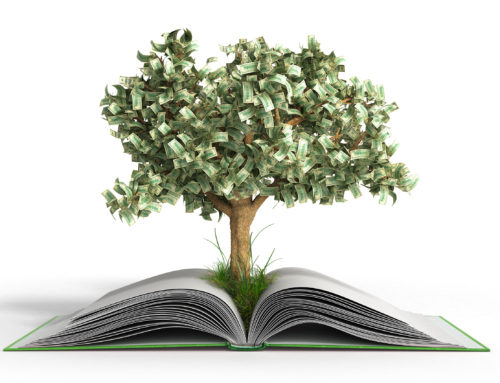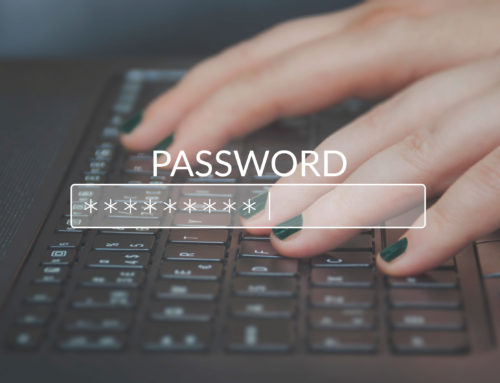I’m a big fan of credit cards, but credit card companies are not a fan of me. Why? I’ll explain more in the article. Other things I’ll talk about: I’ll break down the pros and cons of credit cards and call out some tips and watchouts to help make you a credit pro. No, a credit pro isn’t really a thing, but it sounds good so keep reading.
First the Scary Stuff
Too often, we only hear anti-credit card advice. People scream,
“Don’t get one!”
“Cut them up!”
“You’ll ruin your life!”
“You’ll shoot your eye out!”
Maybe not that last one, but it’s in the same family as the other vague statements. Why do people say these things? Well, they honestly mean well. They probably know someone, or at least have heard stories of someone, that have struggled or are currently struggling with credit card debt. And that someone may be them. The issue with credit cards is the potentially downward spiral of ease; the ease of use and the ease at which you find yourself in trouble because of the ease of use.
I’ll use myself as an example. I have several credit cards. One of them is an American Express card. I like American Express because of the benefits they offer and the customer service. I’ll talk more about that later. I have had one or more American Express cards for 20 years so I’ve been a “cardmember” that long. I’ll play out how our relationship works in a short script:
Me: “Hi, American Express. Nice to meet you. I’m C.J. I’d like to open a line of credit with you. You know, where you let me borrow up to a certain amount of money on an ongoing basis and I pay you back every month.”
American Express: “Hey C.J.! And by the way, call me Amex. Your credit looks pretty good so you seem trustworthy. Sure, we’ll open you up a line of credit. You can access it by swiping this shiny card at card readers or typing in the numbers when you’re buying something online. We’ll make you an instant loan on the spot. We’ll even give you some cool perks to go along with it, like points every time you make a loan from us.”
Me: “Oh great! That sounds perfect. How much does that cost? Oh, and you can call me The Money Whys Guy.”
Amex: “Sir, we’re not calling you that. As far as costs, it doesn’t cost you anything as long as you pay the loan back in full every month.”
Me: “What if I can’t pay the loan back in full every month? Or what if I accidentally forget to make the payment on time?”
Amex: “It’s no big deal. It happens. You can just pay a little bit at a time and chip away at it. We’d just have to charge you a little fee. You know, to cover the paperwork. Our bosses make us do it. They’re lame. There’s some paperwork we’ll send you with the details, but it’s boring legal stuff so you don’t have to pay too much attention to it.”
Me: “Ok, I guess that sounds cool.”
Amex: “Awesome! Looking forward to making money from working with you!”
Me: “What was that?”
Amex: “Nothing. Bye!”

Aaaand scene! With that as background, let me highlight some of the details of the “paperwork” aka the Cardmember agreement that I have with Amex after 20 years of on-time payments and overall excellent credit. My current APR for purchases is 15.24%. The cash advance APR is 25.24%. And get this. If I’m late with one…ONE SINGLE payment, my APR gets jacked up to 29.24% for at least 6 months! Oh, and don’t forget the $40 late fee to add insult.
This is where people get in trouble. The tiny writing is ignored and they believe they’re fine charging more on the card than they actually have because they can just chip away at it a little bit at a time by paying the minimum payment. Those interest fees start to add up fast! The scariest thing I read in the agreement was this statement: “This method of figuring the beginning balance results in daily compounding of interest.”. I wrote about the gift and the curse of compound interest recently. This is the curse side. Using my numbers, if I charged $500 on my card, wasn’t able to pay it back in full, and was late with my payment, I would be bumped to that 29.24% interest rate. If I only made the minimum payment each month ($40 in my case based on how the minimum payment is calculated in my agreement), it would take me a year and a half to pay off the debt! And this assumes I’m making no more charges on the card during this time.
Unfortunately, this typically isn’t the case for people who are struggling with credit card debt. They end up charging more on the card while trying to pay off the original balance. The interest and the fees compound and create this snowball of debt that becomes overwhelming.
But Wait, Credit Cards Can be Awesome!
So far, I’ve painted a sufficiently grim picture of credit cards. Before getting to the fun stuff, I wanted to first point out that there are potential dangers associated with credit cards so you should be careful. It’s kind of like those old driver’s ed videos from the 1950’s where they tried to encourage teen drivers to take driving more seriously by showing them videos of accident scenes. I had planned to link to one of the videos as an example, but they’re actually pretty gruesome. Should you choose to check these out on your own, just know you’ve been warned.
Anyway, back to credit cards. The thing to remember: It’s not the credit card that causes the debt. It’s the user. If you have the right mindset around spending and the discipline to go along with it, a credit card can be a powerful weapon for building your credit, boosting your credit score, and racking up a ton of free perks. Perks range from cashback on purchases to points you can redeem for goods or travel to shopping and service discounts to exclusive event access to concierge services to a number of other benefits. I purchased a new set of golf clubs and we’ve taken entire vacations using only earned credit card points. One of my favorite perks that my card has is the purchase protection feature. This is like an extra warranty on top of the warranty you might get from a store or a manufacturer on something you buy that covers you in situations the store or manufacturer wouldn’t. For instance, once my wife accidentally dropped her month old iPhone in a parking lot and drove away without realizing it. Of course it wasn’t there when we went back. I filed a claim with American Express and within a couple of days, they applied a statement credit for the price of the phone we had purchased using the card. Had we paid cash, we’d have just been out of a phone.
When played right, meaning you pay the balance IN FULL EVERY MONTH, you’re actually saving money when using credit vs. cash. In my case, because I pay my balances in full every month, the credit card companies get no interest from me…ever. But I get all of their precious points and perks. Careful, though. Like I said, this is a balancing act that requires diligence and self control. Start slow with charging maybe a handful of regularly occurring bills to your credit card and paying off the card at the end of the month. Consider using auto-pay to ensure your payments are made on time. Once you’re comfortable doing that and have a routine, slowly add more day to day spending to boost the rewards. Again, be cautious. It kind of becomes a game and this is what the credit card companies want. Sidebar, I took a gamification course through Coursera that I really enjoyed.
Do’s and Don’ts of Credit Cards
If you’re struggling with credit card debt, check out my free ebook, 3 Things You Can Do Today to Demolish Debt. You can download it from the home page. I also put together a free debt tracker tool to help you create a plan for debt payoff. As I pen this, I’m thinking there’ll be a travel hacking post that spawns from this. Stay tuned. In the meantime, drop your thoughts on credit cards in the comments.
Disclaimers:
* The views and opinions shared in this post are mine and the numbers are based on my own personal financial situation. Please do your research and read through any agreements carefully before signing up for anything.
* The LastPass link above is an affiliate link. It costs you nothing, but I may receive a small commission from LastPass if you purchase a subscription.








I enjoyed reading this post! Great mix of knowledge and subtle humor. AMEX is a great card to have indeed with some great perks and tons on opportunities to stack their precious points (lol).
Glad you enjoyed and sounds like you’re playing the point game, too!
Thanks for supplying some resources that you have created. Looking for the best way to track our finances being a newlywed.
Our best may not be everyone’s best, but we decided to merge our primary finances, meaning that most of what we earn (take home, i.e. after contributing to tax advantaged accounts like our 401k/403b and HSA) goes into a single checking account. From there, we pay all bills, transfer to savings, contribute to after tax investments, and do any discretionary spending…in that order. Then the small amount that we agreed on up front from each paycheck that doesn’t go to our joint checking goes into our individual “slush” funds. This is money that we can use to spend however we want. For example, I choose to spend some of my slush money on overpriced beer. This works for us, but take some time to discuss and see what works for you. If you try it and it doesn’t work, talk about what’s not working and adjust. I keep saying it, but I think the more you can automate, the better. Good luck and let me know how it goes!